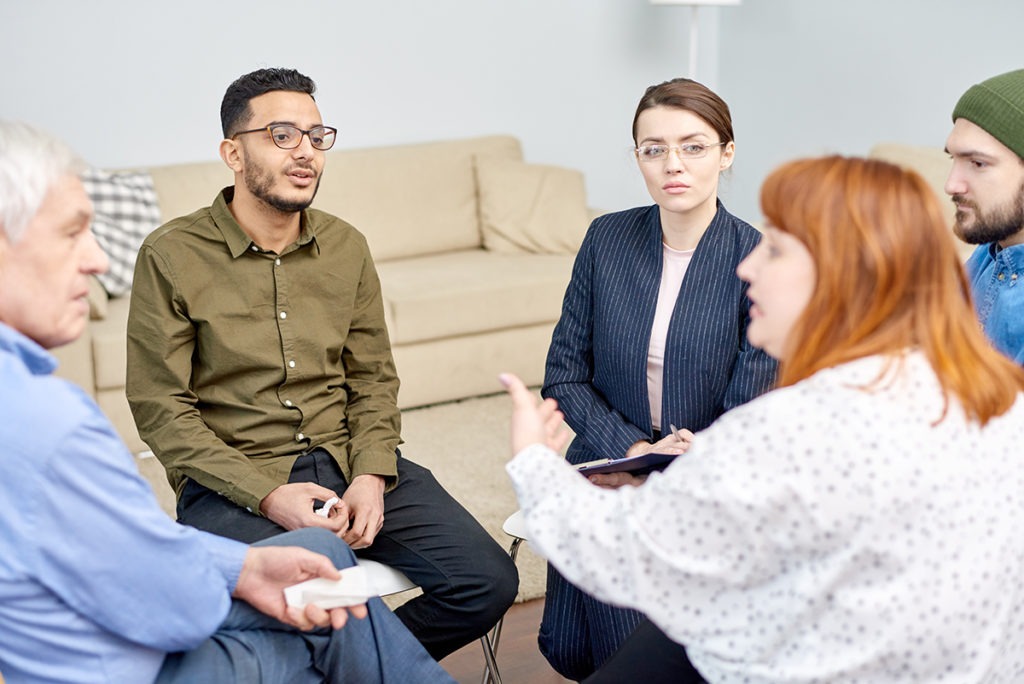Nothing can make us feel quite as helpless as watching friends and family struggling with addiction. We may wonder, “what we can do to help our loved ones build recovery skills, “Should I suggest a treatment program?” or, in light of the challenges they face on the road to recovery, “what is our role?”
While almost all mental health disorders have a mix of medical, cognitive, employment-related, relationship-based and intrapersonal repercussions, substance use disorders are infamous for them, and we are not immune to the challenges either. “These problems create a significant burden for the affected individuals, their families, and society” (Daley, 2013, p. S73).
Components of a well-rounded substance abuse treatment program will aid the patient’s family to involve themselves healthfully in their loved one’s life. Educational programs offered might include identifying triggers, learning how to notice warning signs or addressing their own reactions in a manner that builds relationships.
Your Support is Invaluable to the Process of Building Recovery Skills
Friends and family members of loved ones in recovery are often an invaluable source of support. Healthy or healing family members are familiar sources of assistance. They help the person in recovery develop recovery skills by modeling, sharing personal experiences and being available for support once they return to their environment.
Below are four important tips to remember as you offer up your support.
1. Take Care of Yourself
Before we move on to other examples of how you can be helpful to a family member in recovery, be sure that you are tending to your own needs. A valuable source of information is the admission coordinator at your loved one’s treatment center. These individuals will likely be able to refer you to another therapist familiar with your situation.
When it comes to your own well-being, don’t be afraid to ask if there is someone you can ask for help, even if it is just a brief question.
2. Gather Information
When your loved one begins a residential treatment program, it can be helpful to know what to expect. Visit our Family FAQs section of the linked page to learn more about specific practices at The Right Step, or reach out to your loved one’s admission coordinator at our Hill Country, Dallas-Fort Worth or Houston locations.
3. Get to Know a New Version of Your Loved One
How can you bond with your loved ones as they heal? How can you get to know them as they develop in this new direction?
4. Help Your Loved One Build Recovery Skills
Protective factors are things that soften the blow of trauma—they increase your resilience or ability to bounce back from or remain the same in the face of challenge. While some aspects of life are uncontrollable (i.e., growing up in crime-free neighborhoods), protective factors are positive things you can add to your life to balance out the scale. Some examples include preventing depressive thinking by addressing concerns vs. ruminating, preventing poor health by exercising and developing a sense of purpose.
The six important areas to address in your loved one’s life are:
- Developing social support
- Learning and practicing healthy coping skills
- Taking care of physical health
- Cultivating a sense of purpose
- Strengthening self-esteem
- Replacing unhealthy thinking with more optimistic, rational thinking
While you cannot bear the burden of recovery for your loved one, you are a vital part of the process. Helping your loved ones build recovery skills by modeling them yourself and encouraging their growth is invaluable. If your loved one is not yet in a treatment program and you’re looking for the next steps, read more about the importance of recovery or make the call today at 844-768-0458 for a free, confidential consultation.






